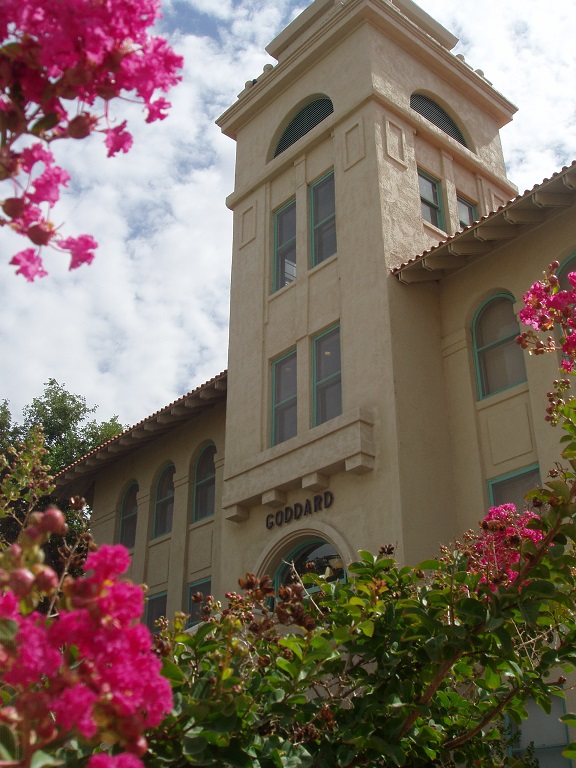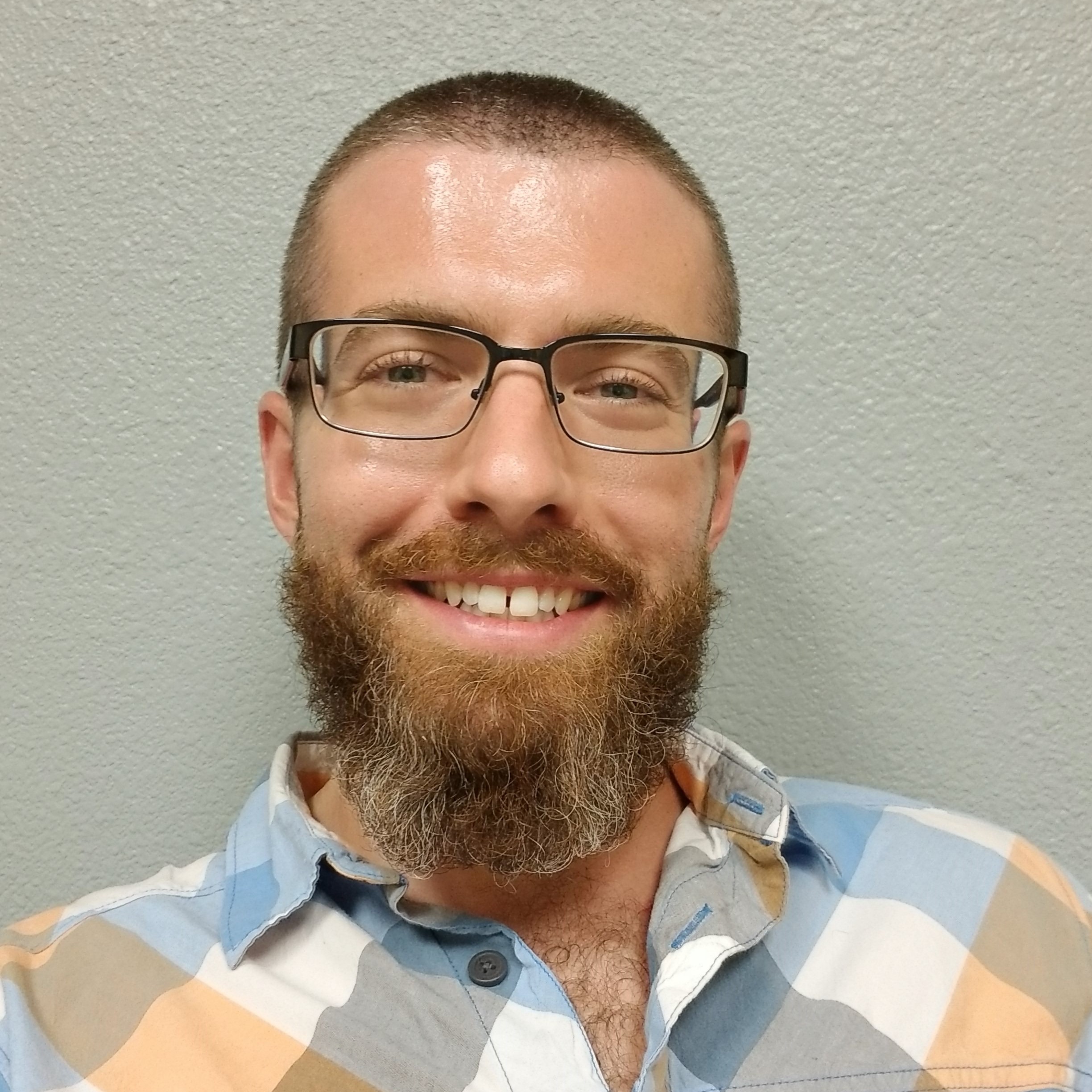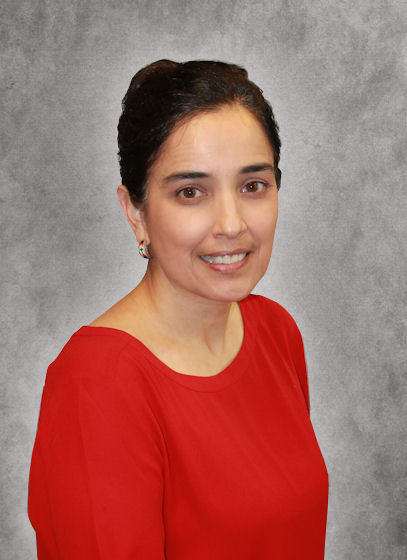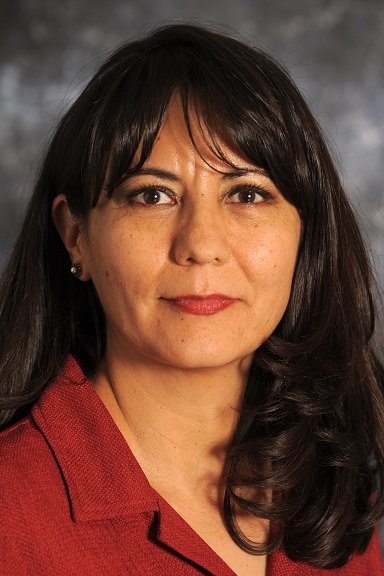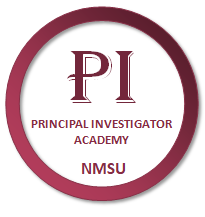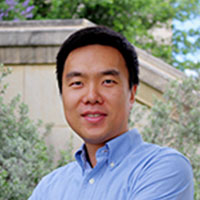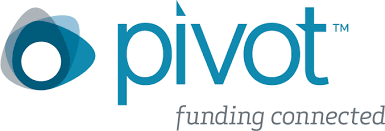 |
|
Welcome New Faculty Members!By Luis Cifuentes, Vice President for Research and Dean of Graduate School
A hearty welcome to all our new faculty and specially to our assistant professors who have blessed us by choosing NMSU to start your academic careers. Thank you for taking the time to read the monthly Research and Graduate School Digest. For September, I have adapted an article I published in Empowering Diversity Leaders Proceedings of the 2017 Alliances for Graduate Education and the Professoriate National Forum. More than twenty-eight years in higher education have taught me the value of being positive and taking advantage of all opportunities—change is constant and adaptation is a critical skill. Finding and cultivating a supportive network; knowing how teaching, research, and service were valued and evaluated in my institution; and learning self-awareness of my strengths and weaknesses were keys to my success. These keys not only served me in reaching full professor through tenure and promotion; they have also guided me through a productive career in higher education administration. My personal, educational, and professional life has been one of sharp contrasts. I began my youth in Latin America; living in Ecuador, Paraguay, Chile, and Guatemala. When I was 10 years of age, my family settled in the Washington, D.C., area. I attended a private, east coast liberal arts college; completed graduate study at a public research university; and served in a postdoctoral fellowship at a world-class research institute in my discipline. The sharp contrasts experienced among Latin American cultures and the culture of the United States taught me the cultural humility required to navigate the different academic cultures I encountered among and within the universities I have served. Taking stock of my graduate school and postdoctoral fellowship experiences, it was critical that I took advantage of opportunities, some more obvious than others. For example, I began my Master of Science degree with a study of clay particle flocculation along the salinity gradient while at the College of Marine Studies at the University of Delaware. My eventual master’s and doctoral theses advisor, Dr. Jonathan Sharp, noted my lack of enthusiasm for that project and offered me the option to address a carbon and nitrogen cycling study that aligned better with my analytical chemistry background and interests, but was not as well-funded. It was difficult for me to disappoint my initial advisor and lose long-term funding. However, moving to an area of study that excited and energized me was a critical early decision in my career. During the early stages of my PhD studies, I had the opportunity to visit Dr. Thomas Hoering, a distinguished organic geochemist at the Geophysical Laboratory of the Carnegie Institution of Washington. Dr. Kenneth Mopper, a member of my dissertation committee, offered to take me with him and learn more about the exciting high-performance liquid chromatographic techniques Dr. Hoering and his colleague, Dr. Ed Hare, developed to measure amino acids. I came very close to passing on the opportunity, but changed my mind at the last minute. That decision ultimately led to a Predoctoral Fellowship and later a Postdoctoral Fellowship at the Geophysical Laboratory; which, without a doubt, led me down the path to career success. Perusing job advertisements in Nature and Science magazines and Eos, the magazine published by the American Geophysical Union, was a weekly event that I shared with my postdoctoral advisor, Dr. Marilyn Fogel. When the assistant professor position in chemical oceanography opened at Texas A&M University in College Station, Texas, Dr. Fogel asked if I planned to apply. Not having traveled further west than Western Maryland, I impulsively answered, “there is no way that I will move to Texas.” Dr. Fogel, though not much older than me, was much the wiser and responded, “Luis, you will apply to every open position that fits, if the job is offered then you may choose not to move there and decline.” Fortunately, I listened to her sage advice, and gained a great appreciation for Texas A&M University, College Station, and Texas. I would not presume to suggest that anyone else respond as I did to the culture “shock” of moving from Washington, DC, to College Station, Texas. I would; however, caution all who look to a career in higher education that the job market, at present, will rarely land one at the geographical region of choice— learn to bloom where you are planted. I was woefully ignorant of the promotion and tenure (P&T) process when I arrived at Texas A&M University. During the late 1980s and early 1990s, the P&T process was not as well documented, explained, and supervised as it is today. Following the counsel of a senior faculty mentor, I leveraged the network and gravitas of the Geophysical Laboratory to develop an internal and external network of colleagues that enabled me to find research funding for exciting and relevant projects. This network led to peer-reviewed publications, published abstracts and presentations that stood up to the P&T criteria of my department, college and university. I served as the chair of the University Tenure and Promotion Committee at Texas A&M University-Corpus Christi and advise new faculty to be assertive, to ask their department chair and dean to review in detail all relevant P&T documents, and to insist on an annual assessment of progress to tenure and/or promotions. Reviewing my path to tenure, I recall at least five decisive moments that, had I made a different choice, could likely have resulted in denial of tenure. For example, my first NSF funded project was to use nitrogen isotope ratios as a tracer of bacterial nitrogen sources in estuarine and coastal waters. More than halfway through the project timeline, I spoke with the program manager who remarked that he was disappointed in the results to date from his investment in nitrogen isotope studies. Although he complimented my program, I understood the possibility that support of nitrogen isotopes was in jeopardy and resourced my laboratory to focus more on carbon isotope applications. More and more, higher education careers require changes in research and scholarly direction, which are uncomfortable but necessary to navigate. Finally, the tenure and promotion process is not devoid of politics. I have served at Texas A&M University, a globally recognized Tier I university that, at that time, had an enrollment near 50,000 students; at Texas A&M University Corpus Christi, a Hispanic Serving Institution with 12,000 students, significant first generation enrollment, military-friendly school designation, and aspirations to be an emerging research university; and now at New Mexico State University. These distinct institutions have different shared governance cultures and different tenure and promotion expectations. Distinguish yourself by taking the time to understand the dynamics of your department, college, and university and “make your own luck.” |
|
The "100 in October Challenge"By Phillip De Leon, Associate VP for Research
The Office of the Vice President for Research and Dean of Graduate School is keenly aware of the challenges faculty face at the start of the new academic year and especially this particular year. The OVPR stands ready to support proposal development and writing efforts. In July, NMSU submitted a monthly record of 92 proposals. Congratulations to all those who submitted proposals seeking funding for their research and creative activity! The OVPR is targeting submission of 100 proposals in October. To achieve this goal, OVPR is offering an incentive to submit a proposal: $250 stipend in addition to up to $1000 in Indirect Cost (IDC) generated from an award for each PI/co-PI on proposal. Multiple individuals may collaborate and submit the proposal as PI or co-PI. Limit of 1 stipend per person deposited in an unrestricted account. Proposal budget should be in excess of $5000 x [number of PI(s) + number of co-PI(s)]. For more information please visit https://research.nmsu.edu/100inoctober.html. |
|
NMSU IRB UpdateBy Michelle Gavin, Research Integrity Coordinator, RIC
The NMSU Institutional Review Board (IRB) and the Office of Research Integrity and Compliance (RIC) welcome NMSU faculty, staff, and students to Fall 2020. The IRB Committee and RIC staff are excited about all the great research that's being done here at NMSU and are here to help researchers comply with federal, state and institutional regulations to ensure safety and projection of human subjects involved in Research! It's been an eventful and challenging time but the IRB continues to support the research community while ensuring the protection of human subject participants. Recent highlights of the IRB:
If you have questions or need assistance, the IRB and the compliance office staff are here to help. We have incorporated zoom meetings with researchers to help answer questions and discuss their specific research projects and how to ensure protection of human subject participants. If you need help, we're just a phone call 575-646-7177 or email ovpr@nmsu.edu away. |
Michelle Gavin, Research Integrity and Compliance, NMSU |
NASA Awards New Mexico Space Grant Consortium (NMSGC) A Cooperative Agreement for a Program-Level Independent Evaluation OpportunityBy Paulo Oemig, Director, NM NASA EPSCoR/NM Space Grant Consortium, Administrative Principal Investigator
|
 Dr. Paulo Oemig, NMSGC,
|
NMSU Counseling Psychology Doctoral Candidate Wins Prestigious Psi Chi Graduate Research GrantBy Hamid Mansouri Rad, Sr. Proposal Development Specialist, RAS
|
|
Research Administration Spotlight: Cynthia RamirezBy Hamid Mansouri Rad, Sr. Proposal Development Specialist, RAS
Proposal development specialists (PDS) at Research Administration Services (RAS) assist NMSU faculty and researchers in development of their proposals at various stages. Ms. Cindy Ramirez is one of the PDS’s at RAS who supports NMSU community with their proposals. Cindy joined NMSU for the second time in January of 2017. She worked at NMSU from 2000 to 2003 as a program coordinator in the College of Agricultural Consumer and Environmental Sciences (ACES), serving as the program manager of a joint project with Texas A&M University, funded by the W.K. Kellogg Foundation. Working on that project allowed her to be part of both Texas and New Mexico Extension Services engaging school districts in both states. She also conducted recruiting for ACES and taught an introductory agriculture course in that college. She then joined University of Texas at El Paso (UTEP) where she was a program manager for many programs for a total of 13 years. She managed UTEP’s HHMI, NIH MARC, NIH RISE, NSF GK-12, and Teachers for a New Era program funded by Carnegie Foundation, providing her with the opportunity to work with two provosts and faculty in the Colleges of Education and Science. She, then, joined Texas Tech University Health Sciences Center at El Paso as a Research Administrator before coming back home to NMSU/RAS in 2017. |
|
Webinar on Health Disparities ResearchBy Hamid Mansouri Rad, Senior Proposal Development Specialist, RAS
Dr. Rebecca Palacios, Associate Professor of Public Health in the College of Health and Social Services will offer a webinar on September 25, from 11:00am to 12:00noon discussing topics related to health disparities research. Titled, "Shifting Programmatic and Research Agendas from a Health Disparities Model to a Health Equity Model," this presentation will describe a national research and programmatic agenda that is shifting from a problem focused model (for example, sole focus on health disparities) to one that is solution focused (for example, calling for strategies to eliminate health disparities). With the ultimate goal of attaining health equity, or the highest level of health for all people, federal agencies are calling for evidence-based solutions to health disparities that are driven by social, economic, and environmental factors. The presentation will describe how shifting to a health equity model calls for integrative and multidisciplinary research, community partnerships, and training and enhancing skills in the workforce. To register for the workshop please send email to hamid@nmsu.edu. Dr. Palacios could be reached at rpalacio@nmsu.edu.
|
Dr. Rebecca Palacios, Associate
|
NMSU Principal Investigator (PI) Academy Class of 2020-21 Goes OnlineBy Cindy Ramirez, Proposal Development Specialist, RAS We welcome all new faculty to NMSU and look forward to having you as part of the Academy! For more information send email to cindyram@nmsu.edu. |
|
NASA Invites NMSU Team to Submit Full Proposal for a University Leadership Initiative (ULI) ProgramBy Paulo Oemig, Director NM Space Grant Consortium/NM NASA EPSCoR |
Dr. Liang Sun, Assistant Professor of Mechnical Engineering , NMSU |
Pivot Funding Opportunity Database
This is a reminder that in order to assist NMSU faculty and staff in locating external funding opportunities, the Office of the Vice President for Research and Dean of Graduate School has purchased a subscription to ProQuest’s Pivot software available at https://pivot.proquest.com/session/login.
To request a one-on-one or group Pivot training, send email to hamid@nmsu.edu. |
|
Limited Submission Funding Opportunities
The Office of Research Administration Services lists limited submission funding opportunities at https://limitedsubmission.nmsu.edu. We encourage NMSU faculty and staff to periodically visit the site and if they are interested in any of the opportunities to please inform us by sending email to ls-ras@nmsu.edu. As a reminder, the site is only accessible on campus. Accessing the site using off-campus computers require first downloading and logging in through NMSU's VPN at https://vpn.nmsu.edu. |
|
Graduate School |
|
Welcome Graduate Students!By Luis A. Vazquez, Regents Professor and Associate Vice President for Research and Graduate Studies
|
|
New Graduate Student Orientation through CanvasNew graduate student orientation is accessible through Canvas. Please logon to Canvas with your NMSU credentials. The invitation to the course will be towards the top of your screen. Accept the invitation and you will have access to the course materials. If you do not see an invitation to the course: Email gradinfo@nmsu.edu. Completion of the Course and Course Survey will enter your name in a raffle drawing. Four Scholarships at $500 each. Goodluck, Congratulations, and Welcome to NMSU! |
|
Frequently Asked Questions
Question: Where do I find exam forms? Answer: https://gradschool.nmsu.edu/Current%20Students/Graduate%20Forms.html Question: Where do I find due dates/deadline? Answer: https://gradschool.nmsu.edu/Current%20Students/Graduate%20School%20Calendar.html Question: Does the Graduate School accept digitally completed forms? Answer: Graduate School will be accepting digitally completed forms from official NMSU email addresses. The forms need to be signed off on and complete, but the signatures can be digital. They also can be scanned and emailed, if signed in paper format. Please route the exam forms (scheduling exams to take place) to grad-degrees@nmsu.edu . Please route Exam Results, Programs of Study, Transfer Credit Request forms, Master’s Accelerated Forms, Degree Audit Exception forms, and Change of Admission Semester Forms to graddocs@nmsu.edu GRADUATION Question: Can I get electronic signatures for my thesis/dissertation defense form and the signature page on the document? Answer: Yes, all of our forms can be electronically signed. Exam paperwork needs to be signed and submitted to grad-degrees@nmsu.edu . Program of studies need to be filled out, signed and sent to graddocs@nmsu.edu . Exam results need to be signed and submitted to graddocs@nmsu.edu . Question: Can I defend my dissertation or thesis virtually? Answer: As you know, we are in the midst of a very challenging and fluid situation as the University responds to the coronavirus pandemic. We are also mindful that it is “defense season,” and many students are planning both defenses and public presentations of their dissertation and thesis work. We are making every effort to have defenses and presentations be done remotely to accommodate student’s needs and safety. Question: How do I prepare my manuscript for submission? Answer: When submitting a page-based manuscript of your dissertation or thesis, it must be submitted to ProQuest Dissertation Publishing in Adobe PDF format. When preparing your PDF, follow the guidelines on the following link: https://gradschool.nmsu.edu/Current%20Students/2.-Preparing-Your-Manuscript-for-Submission-Revised.pdf WELL-BEING Question: I am feeling very overwhelmed by the COVID-19 situation. What resources are available to me as a graduate student? Answer: COVID-19 has brought on new challenges and complexity into our lives. This is stressful. Stress can manifest differently in all of us: physically (e.g., upset stomach), psychologically (e.g., anxiety, depression), or behaviorally (e.g., substance abuse). Support and resources continue to be available at NMSU and in the community. The counseling staff and health providers on campus can help you cope and get on a healthy path. They can also give you referrals to other programs. The Health and Wellness Center remains open to support students and employees. It is advised that you telephone before visiting the Health and Wellness Center to schedule an appointment by calling 575-646-1512. When visiting the Health and Wellness Center expect to receive an initial screening before being able to enter the building. Counseling is available through tele-counseling services. Schedule an appointment by calling 575-646-1512 or emailing at campus_health@nmsu.edu . Please visit https://wellness.nmsu.edu/ for additional information. Question: I’m not sure I can afford or find adequate food/nutrition options during this time. What can I do? Answer: Adequate nutrition is important to maintaining physical and mental health. If you are facing food insecurity, the Aggies Cupboard (located on 906 Gregg St) Food will be distributed Food will be distributed Thursdays from 3pm – 6pm and Tuesdays from 11 am – 1:30 pm on the yard of the Aggie Cupboard. Clients should be ready to state their banner ID. All food boxes are pre- made with either chicken, tuna, or peanut butter. Clients waiting to collect should remain 6 feet from each other in the order they arrive. Red tape is on the ground to identify where to stand. A ‘drive-up’ area is also available. All clients must be wearing a mask to enter the Aggie Cupboard. If you are sick or have come into contact with anyone diagnosed with COVID-19 please stay at home. Please check the Aggie Cupboard website for updates on available supplies and hours of operation. Additionally, a Mobile Food Pantry has prepared special food packs with essentials. Students must bring their NMSU ID and a box/rolling cart to carry up t0 70lbs of perishable food. Registration takes place from 12:00-12:30 and distribution is from 12:30-2:30. The Mobile Food Pantry is located SW corner of Preciado Park (Gregg St. and Sweet Ave.) Please visit https://aggiecupboard.nmsu.edu/ for additional information. GRADUATE SCHOOL LINKS |
|
Coronavirus InformationTo view NMSU's communications regarding the Coronavirus visit: https://nmsu.edu/coronavirus/#communications |
 |
|
Questions and comments regarding NMSU’s Research and Graduate School Digest should be directed to Hamid Mansouri Rad, Ph.D. at hamid@nmsu.edu, (575) 646-6429. |
|
